7 start with V start with V
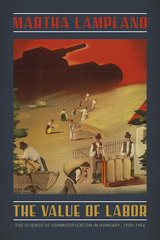
Lampland trains her eye on the scientific claims of modern economic modeling, using Hungary’s unique vantage point to show how theories, policies, and techniques for commodifying agrarian labor that were born in the capitalist era were adopted by the socialist regime as a scientifically designed wage system on cooperative farms. Paying attention to the specific historical circumstances of Hungary, she explores the ways economists and the abstract notions they traffic in can both shape and be shaped by local conditions, and she compellingly shows how labor can be commodified in the absence of a labor market. The result is a unique account of economic thought that unveils hidden but necessary continuities running through the turbulent twentieth century.
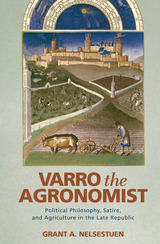
On one level, Varro’s treatise presents an innovative account of the Roman farm, which rationalizes new agricultural and pastoral opportunities for contemporary elite owners of large-scale estates. But on another level, this bold agronomical vision associates the farm’s different spheres with distinct areas under Roman control, thereby allegorizing Rome’s empire on the model of a farm. Nelsestuen argues that Varro’s treatise thus provides his contemporaries with a model for governing the Roman state, anticipates Augustus’ subsequent transformation of Roman dominion into a coherent territorial state, and offers an ancient theory of imperialism.
Shedding new light on the only completely extant work of a much-celebrated but ill-understood figure, Varro the Agronomist has much to offer to those interested in Latin literature—especially, Cicero and Vergil—as well as on the political dimensions of intellectual life in first-century bce Rome, ancient imperialism, and Roman political philosophy.

In spite of the hopes raised and achievements attained by the “Green Revolution,” the less developed rural countries of the world still must struggle for economic growth. Social scientists now focus on the human dimension of development. They search for change agents—men and women who have the initiative to cast aside traditional techniques and who are willing to introduce modern methods to their communities.
The Village Entrepreneur is a timely update on the new strategy of development. With financial backing from the Ford Foundation and the Indian government, Wayne G. Broehl and his associates undertook a comprehensive study of the village entrepreneur in South India. They interviewed hundreds of rural businessmen and attempted to pinpoint the qualities that distinguished change agents from their tradition-bound comrades. Further, they attempted to define the ways in which these agents can be used as conduits of progress. A significant section of the book describes a pilot program established to engender innovative attitudes. The book also provides a working model that will help apply the concept of change agents to other fields and other countries.
A categorical, but controversial, assumption of this work is that change is the sine qua non of development. Broehl believes that such change will necessarily be both economic and social and is likely to be political as well. Realistically presented and forcefully expressed, his findings are a strong contribution to recent development theory.
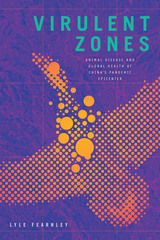
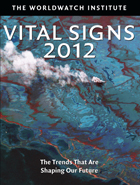
By taking stock of global consumption, Vital Signs 2012 offers the facts that need to guide our stewardship of the Earth's resources-and some of these facts are shocking. The report covers topics from obesity to ecosystem services, from grain production to nuclear power. Taken as a whole, it paints a picture of skyrocketing population, disappearing forests, and increasing consumption peppered with bright spots like growing investment in high-speed trains and other efficient transportation systems.
Vital Signs 2012 is based on Worldwatch's online project of the same name, which provides up-to-date figures on important global concerns, as well as the Institute's own additional research. The book compiles the most important of these into an accessible, informative resource for policymakers and anyone who wants a realistic look at the state of our planet.
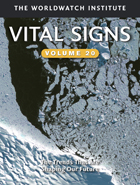
Worldwide, people are waking up to the realities of a resource-constrained planet: investments and subsidies for renewable energy have reached new heights, consumers are slowly shifting away from meat-heavy diets, and new employment structures like co-operatives are democratizing the global economy. Yet with over 1 billion people lacking access to electricity, natural disasters that are more costly than ever before, and an adherence to the factory farm model of food production, it is clear that many obstacles loom on the horizon.
Covering a wide range of environmental, economic, and social themes, Vital Signs, Volume 20 is the go-to source for straightforward data and analyses on the latest issues facing an increasingly crowded planet. By placing each trend within a global framework, Vital Signs, Volume 20 identifies the solutions we need to transition toward a more sustainable world.
This book will be especially useful for policymakers, environmental nonprofits, and students of environmental studies, sustainability, or economics.
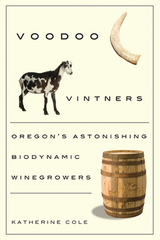
Could cow horns, vortexes, and the words of a prophet named Rudolf Steiner hold the key to producing the most alluring wines in the world—and to saving the planet?
In Voodoo Vintners, wine writer Katherine Cole reveals the mysteries of biodynamic winegrowing, tracing its practice from Paleolithic times to the finest domaines in Burgundy today. At the epicenter of the American biodynamic revolution are the Oregon winemakers who believe that this spiritual style of farming results in the truest translations of terroir and the purest pinot noirs possible.
Cole introduces these “voodoo vintners,” examining their motivations and rationalizations and explaining why the need to farm biodynamically courses through their blood. Her engaging narrative answers the call of oenophiles everywhere for more information about this “beyond organic” style of winemaking.
READERS
Browse our collection.
PUBLISHERS
See BiblioVault's publisher services.
STUDENT SERVICES
Files for college accessibility offices.
UChicago Accessibility Resources
home | accessibility | search | about | contact us
BiblioVault ® 2001 - 2024
The University of Chicago Press









